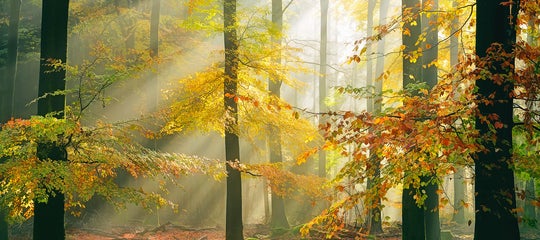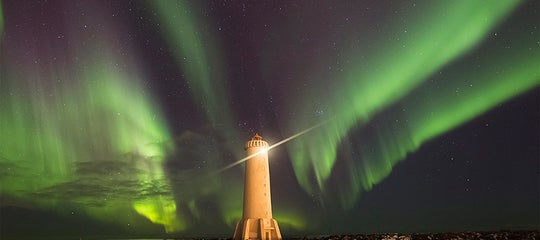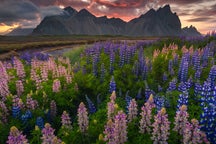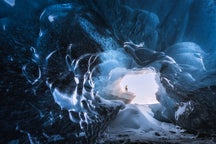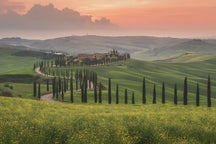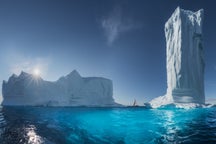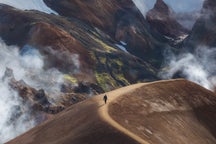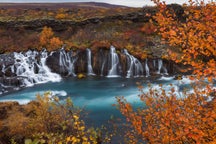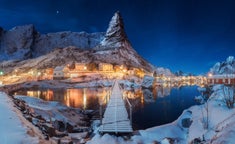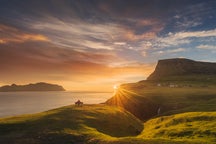
There is something intriguing about the power of nature. Time and again, it seeps into the bones of photographers and permeates their lives. Samuel Scicluna, a landscape photographer based in Malta, is no exception to this force.
- Check out these Italy Photo Workshops
- Explore these articles on Landscape and Nature Photography
- Discover Small Format Photography: What You Need to Know
His desire to see the mountains has taken him on expeditions to Mount Etna, Monte Rosa and eventually to Iceland, sparking a passion for landscape photography that has involved storm chasing, hiking, camping and capturing the night sky. We were lucky enough to catch Samuel in some of his downtime to talk about how he got started photographing landscapes, the influence of nature photography in social media today, the importance of respecting the environment and his commitment to becoming a professional in his craft.
 Samuel's photography has taken him around the world to many places, such as Iceland. Photo by: 'Samuel Scicluna'.
Samuel's photography has taken him around the world to many places, such as Iceland. Photo by: 'Samuel Scicluna'.
- See also: 10 Day Puna de Atacama Photography Tour
Hello Samuel, tell us a bit about your background. Where are you from and how did you first get into photography? Do you have any formal training or are you self-taught?
I am a landscape and severe weather photographer based on the island of Malta. I became interested in photography in 2010, when I bought my first point and shoot camera.
In 2012, I bought my first DSLR camera. At the time, I would carry my camera around with me all the time and pretty much shoot anything that caught my eye. At this time, I used to go camping frequently and this was a great way to shoot sunrise and sunset, as I would be close to a location and wouldn’t need to drive far. Whilst camping, I also experimented with capturing night sky images, star trails and the Milky Way.
I am self-taught and have spent a lot of time experimenting and trying different things. I also spend a lot of time observing light and how it interacts with a landscape to ensure I get the best of it in my images.
 samuel spends a lot of time observing the light. Photo by: 'Samuel Scicluna'.
samuel spends a lot of time observing the light. Photo by: 'Samuel Scicluna'.
- See also: Ultimate Guide to Milky Way Photography
What is it that draws you into capturing landscapes and nature?
I have always loved Mother Nature and the great outdoors. From going on picnics as a child to solo camping, hiking and rock climbing – being outside, away from the busy, modern life, is a way for me to relax and unwind.
I’m a huge advocate for protecting nature and the environment, from sustainable living at home to doing clean-ups locally and ensuring I don’t leave any trace when I leave a location.
 Nature inspires Samuel to keep creating. Photo by: 'Samuel Scicluna'.
Nature inspires Samuel to keep creating. Photo by: 'Samuel Scicluna'.
Do you think talent for photography is something a person is born with?
I think anyone can pickup a camera and can learn the technical aspects of photography, such as exposure, understanding the light and, to an extent, composition. However, I think being a creative person comes from within. Creating images which invoke emotion or thought comes from being creative and expressive, not necessarily technically accurate.
 Learn to express yourself through photography. Photo by: 'Samuel Scicluna'.
Learn to express yourself through photography. Photo by: 'Samuel Scicluna'.
Who or what inspires you to keep creating and exploring?
At first, I didn’t really look at the work of other photographers; I just wanted to do my own thing. As I have learnt more and made friends with other photographers, I have begun to see more of their work and especially their post-processing techniques.
My favourite photographers are Ansel Adams, Iurie Belegurschi, Daniel Kordan, Elia Locardi, Michael Shainblum and Andrew Studer. Seeing their work inspires me to keep improving my own techniques and knowledge.
 Learning from other photographers is a great way to improve your own style. Photo by: 'Samuel Sciclina'.
Learning from other photographers is a great way to improve your own style. Photo by: 'Samuel Sciclina'.
What camera gear do you shoot with?
I shoot Nikon and have done so from the start. My main workhorse is a Nikon D810. I also have several lenses, from 14mm up to 300mm.
I also have some special equipment which I use for astrophotography, like a 24mm F1.4 lens and a star tracker.
- See also: Canon vs Nikon - DSLR Comparison
How would you describe the power of landscape photography and what influence does it have upon nature and the world?
The popularity of landscape photography is growing exponentially, especially in the last few years. I think this inspires people to spend more time outdoors but it also means that some popular locations are seeing too much traffic, with inconsiderate photographers destroying part of the nature they have come to capture. It’s a real pity and it also leads to a lot of restrictions in places. The first time I visited Iceland, there were a lot less restrictions on where you could go to shoot images.
Tourism and travel is very important but it should be done responsibly and everyone should do their best to protect nature and the environment. I always ask workshop participants to act responsibly and to care of the environment.
 Iceland is an example of a place where landscape photographers love to shoot. Photo by: 'Samuel Scicluna'.
Iceland is an example of a place where landscape photographers love to shoot. Photo by: 'Samuel Scicluna'.
What do you try to communicate with your photography? What’s your mission and how do you achieve it?
I like to think that when people see one of my images, it helps them forget about their worries or their busy day and even if just for a second, feel like they are in that location, seeing the view that I captured in that image. I do this by trying to keep my composition as simple as possible. Through the years, I have learnt that what I choose to leave out of the frame is almost as important as what I choose to include in the frame. I try to make images which people can relate to or make them want to visit that location to see it for themselves.
- See also: How to Improve Your Fog Photography
How important is it to have your own niche in landscape photography? How would you describe your style?
I think my style is almost dreamy at times. It is influenced by the images I have studied from photographers who inspire me. I try to make the landscape stand out and feel three dimensional.
I don’t think I have a ‘niche’ but when looking at my earlier work, I can certainly see slight changes in my style and improvement in my work, both at the capturing stage and in post-processing.
 Reviewing your body of work can highlight your changes in style over the years. Photo by: 'Samuel Scicluna'.
Reviewing your body of work can highlight your changes in style over the years. Photo by: 'Samuel Scicluna'.
What are your go-to editing platforms, on desktop and mobile? How long does this process normally take you?
I use Adobe Lightroom and Adobe Photoshop to post-process my images. I do sometimes do very quick edits on my laptop when travelling but I do most of the post-processing at home on my desktop. I don’t usually spend more than 30 minutes editing a landscape image but some astrophotography images take significantly longer to edit, due to complex processes used and the fact that the image is usually made up of several different frames.
 According to Samuel, he doesn't spend more than 30 minutes editing a landscape image. Photo by: 'Samuel Scicluna'.
According to Samuel, he doesn't spend more than 30 minutes editing a landscape image. Photo by: 'Samuel Scicluna'.
What are your thoughts on the societal consumption of images? Do you think there are any pitfalls to over-consuming imagery that is processed in a certain way, in terms of how we perceive and relate to objects or nature?
I think it's really important that we remember that nature and the environment around us is what sustains life on Earth. There are a lot more people going out to capture landscape images and creating awe-inspiring works of art but it’s important that we don’t forget how fragile nature and the environment is. Responsible and sustainable landscape photographers need to tread lightly and not create a false sense of hope that nature is thriving. I also talk about this in my workshops, encouraging participants to be conscious of protecting the environment around them.
 Samuel believes that it is important for photographers to not create a false sense that nature is thriving with awe-inspiring imagery. Photo by: 'Samuel Scicluna'.
Samuel believes that it is important for photographers to not create a false sense that nature is thriving with awe-inspiring imagery. Photo by: 'Samuel Scicluna'.
In this day and age, the preservation of the environment is becoming a bigger concern. As photography is an influential medium, do you use the power of your photographs to promote conservation and environmental awareness? Do you have any thoughts about how photographers in general can become more involved in this important matter?
I think it’s important that landscape images document a location at that point in time. The world is ever changing and these images may be used in years to come when some of these locations have changed or become unrecognisable. I think photographers should use their influence to promote conservation and environmental awareness, sharing behind-the-scenes images of the state of locations and organising clean-ups to help restore these locations to their pristine natural condition.
What are your thoughts on staged photo opportunities arranged specifically for a tour or workshop? Are there any ethical dilemmas that need to be considered?
Unfortunately, where money is involved, ethics tend to go out the window. I don’t see any harm in a staged photo if it is mutually beneficial to everyone involved. An example of this would be spending a few days with an Eagle Hunter family in Mongolia – you are supporting them by paying to stay with them and potentially capturing a few images of their lifestyle and culture. However, it’s important that this is mutually beneficial and that these people are not exploited by photographers, and that the images are not used in a context where they can be manipulated.
- See also: 11 Day Mongolia Photography Tour
What sorts of things do you think might challenge you in the future or do you have any types of photography that you want to investigate? Where do you see your photography going in terms of subject and style?
I have always loved nature and being outdoors and right now, I don’t see myself doing any other type of photography other than landscape photography. I am always looking to improve my knowledge and skills, whether this is through improved techniques in the field or learning new processes in post-production. I just want to keep working to improve my work and hopefully bring awareness about nature and the environment. I want to continue to organise and lead workshops to share my knowledge with other landscape photographers and help them improve their imagery.
 Samuel enjoys landscape photography and hopes to one day become a full-time landscape photographer. Photo by: 'Samuel Scicluna'.
Samuel enjoys landscape photography and hopes to one day become a full-time landscape photographer. Photo by: 'Samuel Scicluna'.
Do you have any plans for exhibitions, books or any interesting projects coming? Can you tell us a bit more about your artistic plans for the next couple of years?
I am building a portfolio to display at an exhibition in the next few years but this is a long-term project and still quite far from coming to fruition. I have recently released my first E-book on Mastering Landscape Photography and I am in the process of writing a second E-book, which will be focused specifically on landscape photography at night.
Next year, I am planning to take a 12-month sabbatical from work to scout new locations to travel to and run more workshops. I enjoy teaching photography and mentoring other photographers to improve the quality of their work. I would also love to visit the US to photograph severe weather on the great plains. In the future, I hope to become a full time landscape photographer.
 Photographing meteorological phenomena is a passion for Samuel. Photo by: 'Samuel Scicluna'.
Photographing meteorological phenomena is a passion for Samuel. Photo by: 'Samuel Scicluna'.
Thank you for sharing your thoughts with us today. Finally, what is the most important advice you have for amateur photographers who want to improve their photography in-field?
Plan your photo in advance, get to your location early so that you can find a strong composition and wait for the best light. You will have plenty of disappointments where the light and weather don’t cooperate but don’t be disheartened. Sacrifice and persistence are the keys to capturing great landscape images. Shoot at every opportunity that you get. Practise is vital both for capturing the frames correctly in the field and for improving your post processing skills.
For more information on Samuel Scicluna's work, you can visit his website or find him on Facebook and Instagram.
Travel the world while learning all about how to capture beautiful landscape images. Check out our range of international photo tours and photography workshops.


